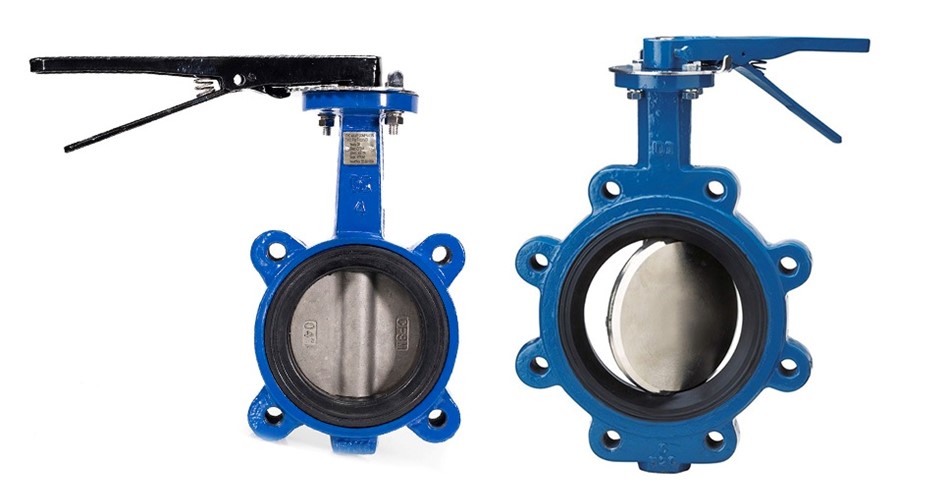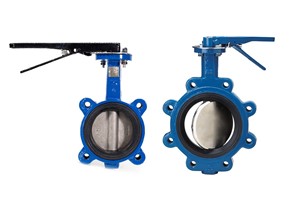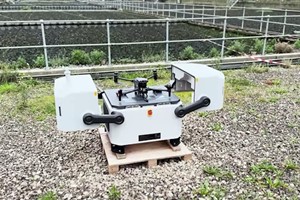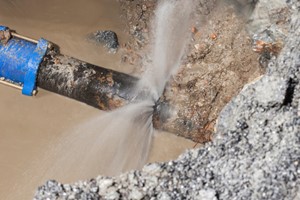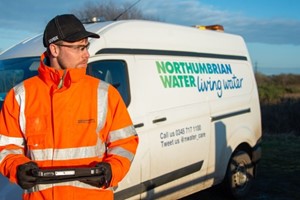The Global Butterfly Valves Market is estimated to be USD 9,663.13 Mn in 2021 and is projected to reach USD 13,473.28 Mn by 2027, growing at a CAGR of 4.58%.
Valves that are commonly used in processes warranting more enduring valves with distinct features are called as Butterfly Valves. Butterfly valves are superior alternatives to metal valves in many aspects and it display high corrosion-resistance & light weight.
Market Drivers
Prior to the residual water, known as effluent, being released back into the environment, wastewater treatment's principal goal is to remove as much of the suspended solids as possible. Automation in the water and wastewater sector is a result of the need to improve production and boost the effectiveness of various processes.
The growing automation in the water and wastewater sector offers the market the ideal chance for expansion. The Butterfly valves demand the least amount of human involvement. The increased safety of workers and pipelines, decreased manual intervention, and decreased cost of water waste in water and wastewater treatment facilities were only a few advantages of using butterfly valves.
The demand for Butterfly valves in the water and wastewater industry is also anticipated to rise as a result of an increase in the amount of wastewater that water utility companies like Yorkshire Water, Anglian Water, Wessex Water, and Southern Water, among others, in the United Kingdom, treat daily.
Market Restraints
Limited throttling, increased local producer competition, a sizable danger of cavitation, and choke flow are all expected to hinder the expansion of the butterfly valve sector. More and more domestic manufacturers, including those in India, are creating a range of valves that satisfy international standards, including severe-service valves.
The majority of butterfly valve field issues are brought on by poor installation techniques. Turbulence influences the unguided disc movement of butterfly valves. Additionally, the high cost of producing industrial valves could have a detrimental effect on market expansion.
Market Segmentation
Butterfly Valves Market is segmented into major 4 categories. Based Application, the market is segmented into Eccentric Valves, Centric Valves (Zero Offset Butterfly Valves). Based on Function Type, the market is divided into On /Off Valves, Control Valves. Based on Type, the market is segmented into High-Performance Butterfly Valves, Lined Butterfly Valves. Based on Region, the market is segmented into North America, Europe, Asia Pacific, Latin America, Middle East.
Regional Analysis
Asia Pacific region dominates the Butterfly Valves market across the world with CAGR 4.86% because of the fast urbanization and industrialization. Furthermore, governments in the region are investing in municipal water treatment infrastructure to protect natural water bodies from contamination and promote water reuse.
Europe occupied the second-highest market and is anticipated to grow at a significant CAGR 4.85% throughout the forecast period owing to The EU's water policy over the past 30 years is focused on the protection of water resources. The EU's water policy aims at ensuring that good quality water, in sufficient quantity, is available for all legitimate uses. Moreover, an increase in the volume of wastewater treated daily by water utility companies such as Yorkshire Water, Anglian Water, Wessex Water, and Southern Water, among others in the United Kingdom is also expected to increase the demand for vales in the water and wastewater industry.
Market Key Players
Some of the key players operating in Global Butterfly Valves Market are AVK Group, Cameron International, Curtiss-Wright Corporation, Alfa-Laval Corporate AB, Crane Co., Weir Group, KSB Group, Velan Inc., Bray and Ebro.
Industry development
In February 2018 Curtiss-Wright Corporation (NYSE:CW) announced that it has entered into an agreement to acquire the assets that comprise the Dresser-Rand Government Business (Dresser-Rand), a business unit of Siemens Government Technologies which is a wholly-owned U.S. subsidiary of Siemens AG in Germany, for $212.5 million in cash. Dresser-Rand is a leading designer and manufacturer of mission-critical, high-speed rotating equipment solutions, including reciprocating compressors, steam turbines and steam system valves & Butterfly Valves etc.
In January 2020 Alfa Laval is introducing the Alfa Laval ThinkTop IO-Link, a new version of the company’s second-generation Alfa Laval ThinkTop V50 and V70 sensing and control units for hygienic valves. Inside the ThinkTop IO-Link is the industry 4.0-ready communication protocol to enhance point-to-point communication between smart hygienic valves and advanced automation systems. This enables smarter, more agile valve control due to real-time data exchange, improved diagnostics and simplified configurability and control.



